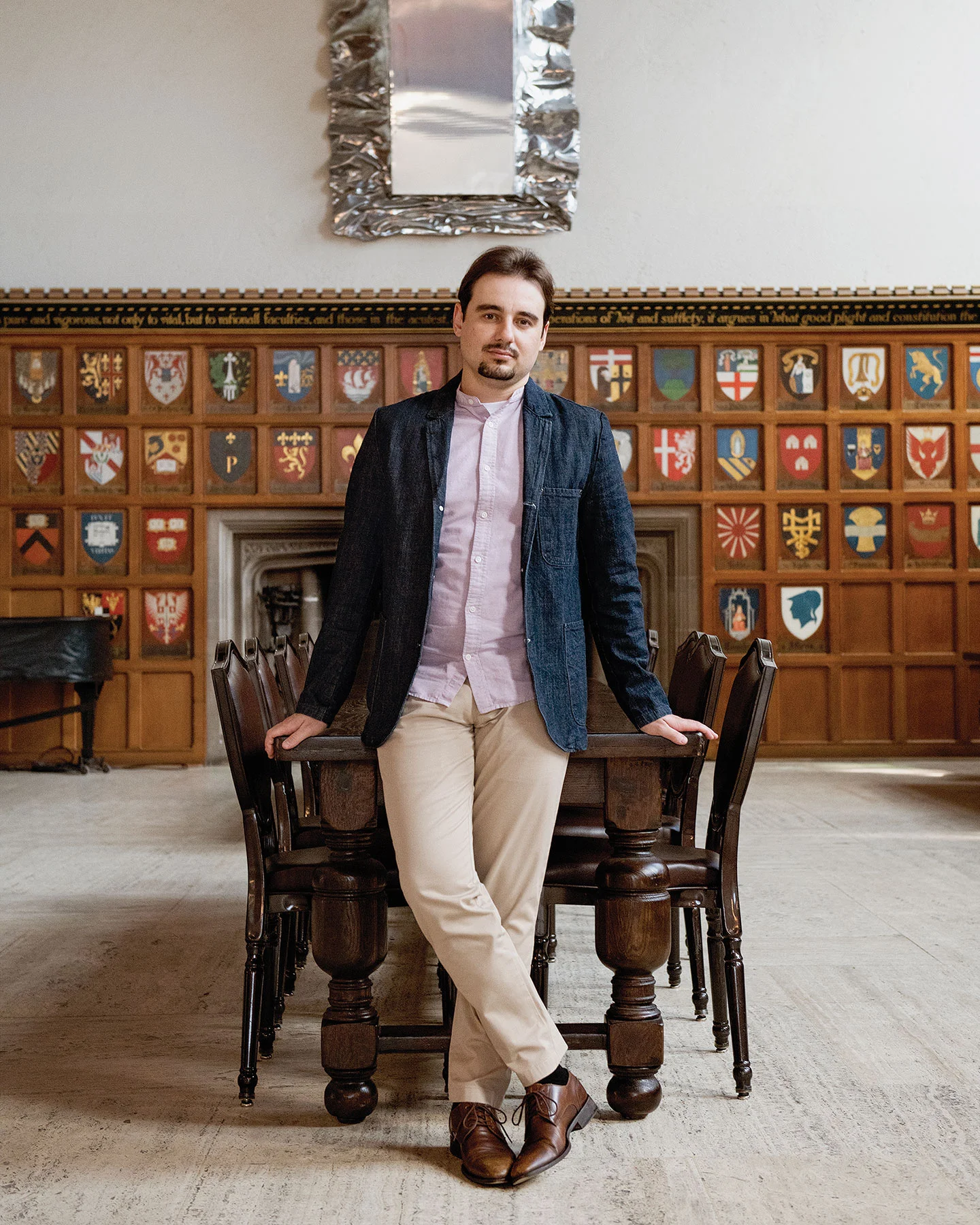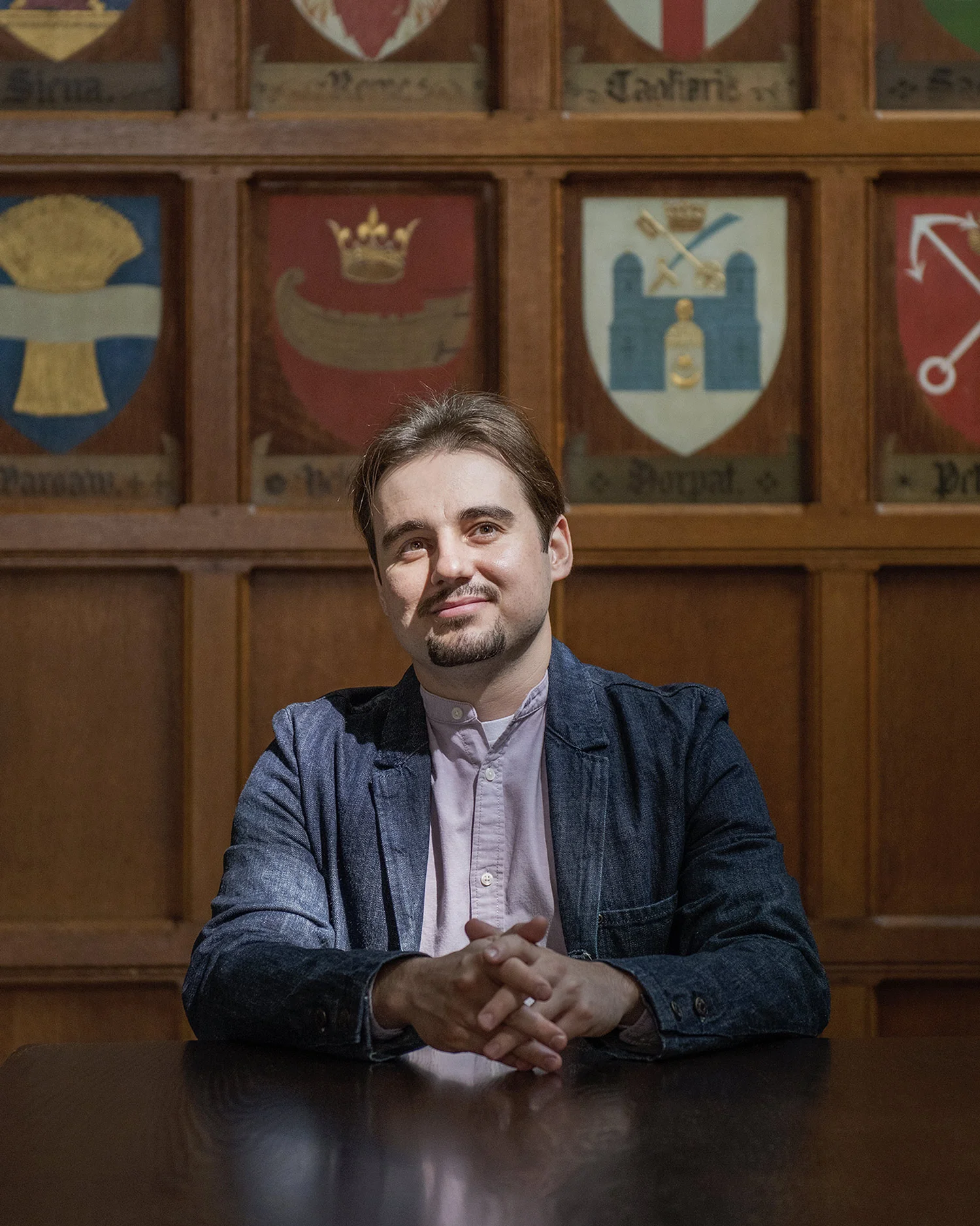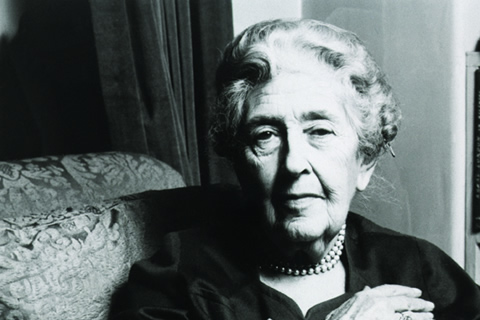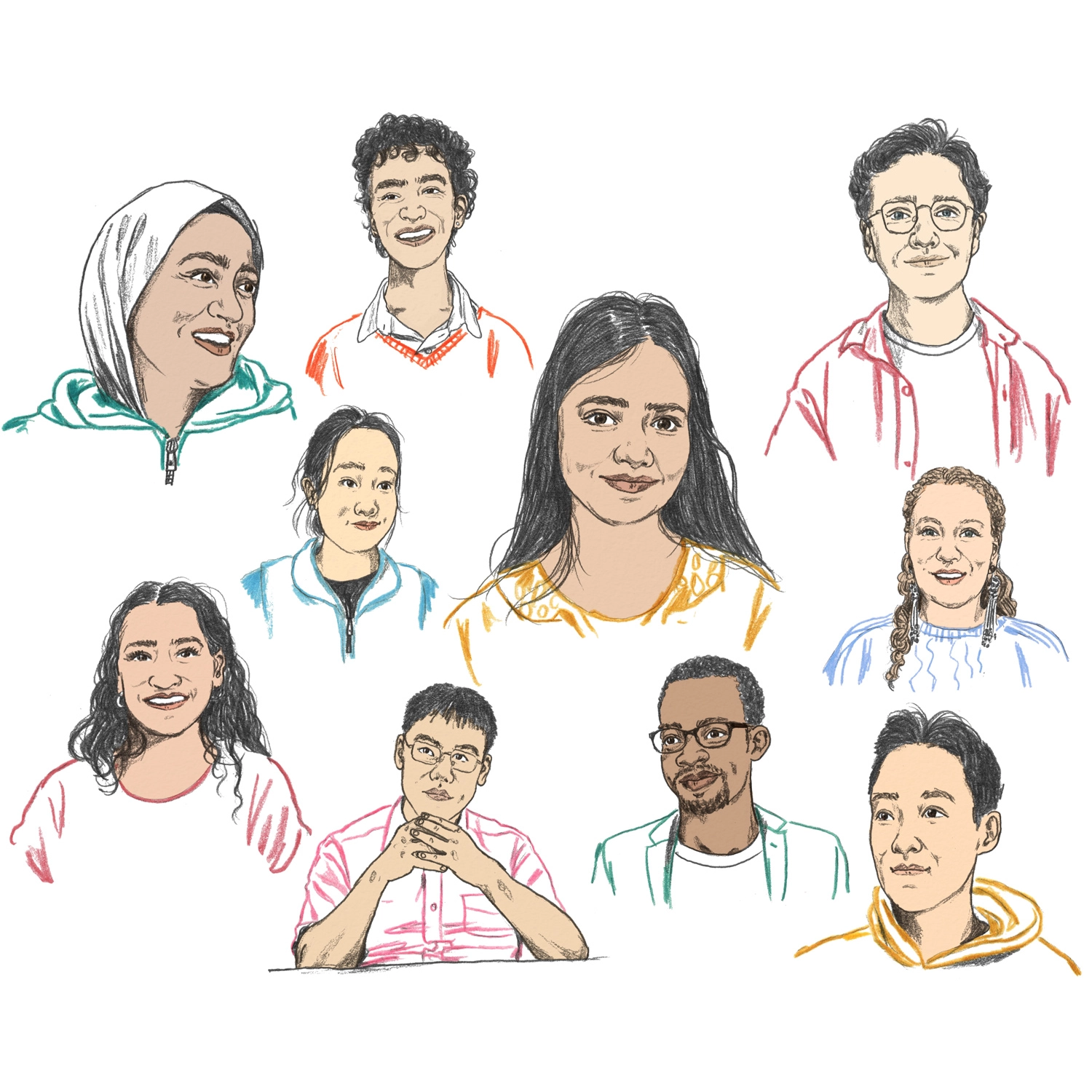A Student's Path from War to Hope
After Russia invaded Ukraine, U of T’s Scholars-at-Risk program helped Vadym Lytvynov follow his dream
Program: Scholars-at-Risk
Launched: 2000
Mission: To offer bursaries to students or scholars who have recently sought asylum or whose studies or research have been affected by crisis – and give them a safe haven at U of T
In the summer of 2022, Vadym Lytvynov left Ukraine and enrolled in the master of science in biomedical communications program at U of T’s Temerty Faculty of Medicine. He has received support from the university’s Scholars-at-Risk program, which offers bursaries of $10,000 to undergraduate and graduate students who have recently sought asylum or are from countries experiencing conflict or political turmoil. Here, Lytvynov, who will graduate this fall, tells his story of coming to U of T.
I woke up at 4 a.m. on February 24, 2022, to what I thought was a thunderstorm. But when I opened my curtains, I saw the sky on fire. I immediately checked the news on my phone, and I understood that the thing that people had been talking about for so long had finally happened.
I was living with my parents in our apartment in Kharkiv. I didn’t wake them until 7 a.m., to let them have a last peaceful sleep. I remember going to bed the night before without any bad feelings or anticipation. For several months, there had been rumours about whether the Russians were doing military drills at the border or preparing for an invasion. It was uncertain up to the last moment.
The Russian soldiers and shelling were already close. If you compare it to being in downtown Toronto, the shelling would be at Kipling subway station.
My parents and I spent time that first day in a nearby subway station. The stations were designed during the Soviet period to be bomb shelters. Some people ended up staying in them for six months, but we decided to go home that day, partly because we were concerned about the Russians getting into the subway system. We were also worried about leaving our property vacant.
March was the worst month for Kharkiv. It was very unsafe in the part of the old city where we lived, because there are a lot of administrative buildings that were targeted.
We had electricity, which was wonderful. Sometimes we didn’t have water. We gathered snow and turned our bathtub into a reservoir. I decided to eat only one meal a day because I didn’t know what would happen next. Later, some post offices started distributing food from humanitarian organizations.
I couldn’t just stay home, so I volunteered for the Red Cross, getting donated medical supplies organized and ready to ship across the country. I finished medical school in 2019 and wanted to use my knowledge to help out.

When the invasion began, I wasn’t working in medicine. I’d become interested in medical illustration around the time of my residency. I took drawing classes and did design internships, then got a full-time job as a graphic designer at a pharmaceutical company in Kharkiv.
In early April, my parents and I decided to move to a friend’s rental apartment in a small town about 150 kilometres away. I volunteered at the local hospital and soon after accepted temporary employment as a physician. Every evening, I had to study to prepare for the next day. To learn things, I created diagrams and illustrations. It reminded me of my passion for what I now know is called biomedical communications. That’s when I applied to the master’s program in Toronto.
It was a big, risky move for me to leave everything – my country, my friends, my family. I’m an only child. My parents decided to stay because they have their jobs, their property and my cat, Benjamin – many important things.
I had been accepted into a special program that allows Ukrainians to work and study in Canada. As an international student, I was able to leave Ukraine legally. After crossing the border, I spent a couple of weeks in refugee camps in Europe before arriving in Toronto in August 2022.
I really like the city and the university. The St. George campus, with its fantastic architecture, reminds me of my favourite place at home: the Kharkiv Polytechnic Institute where I used to play as a child. Both are green oases in the city.
The Scholars-at-Risk program has been a great help for me. It took me into the U of T family and provided me with warmth and support. I’m extremely grateful to Canada and the university for helping me move forward in a difficult time. My master’s program has been very good, and I had the chance to work as a teaching assistant for several courses. I also co-designed a workshop for researchers on effective science communication and volunteered as an illustrator for a student magazine.
I’ve met many fantastic people at the university, but I’m still in touch with my friends from home. We’re always on the phone, and I feel strongly connected to them. The pandemic taught us how to cope with being isolated from each other. I follow the news in Ukraine pretty closely. In February 2023, a missile hit my apartment building. My parents now live in our little country cottage far away from the centre of Kharkiv.
Before, I dreamed of working as a teacher and illustrator at a university in Kharkiv. Now, my ideal would be to work for U of T. If I can be productive and helpful here in Canada, I will definitely stay. Maybe one day, hopefully soon, I will bring my parents here. But nobody knows what will happen in Ukraine. It’s all extremely uncertain.
— As told to Megan Easton






